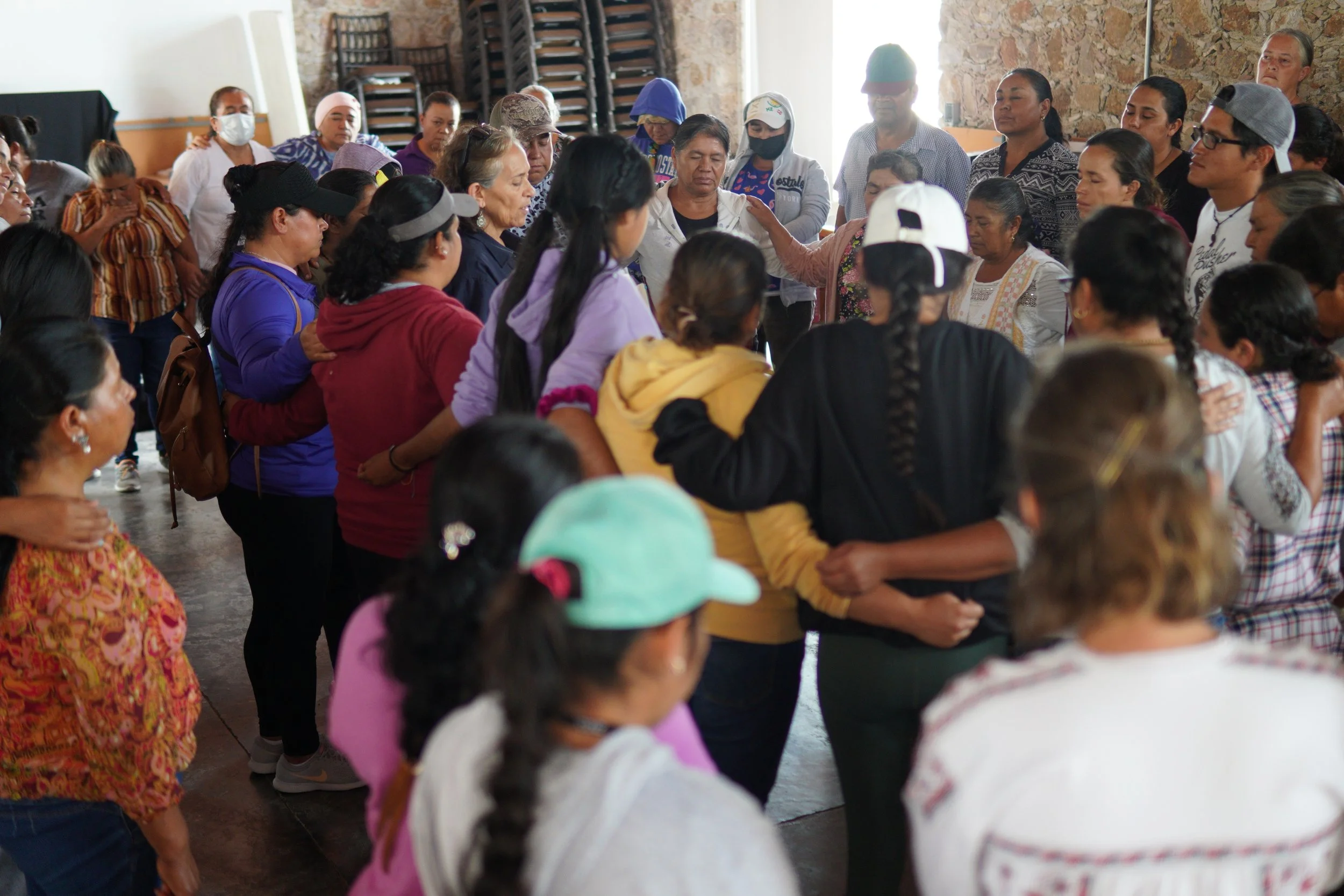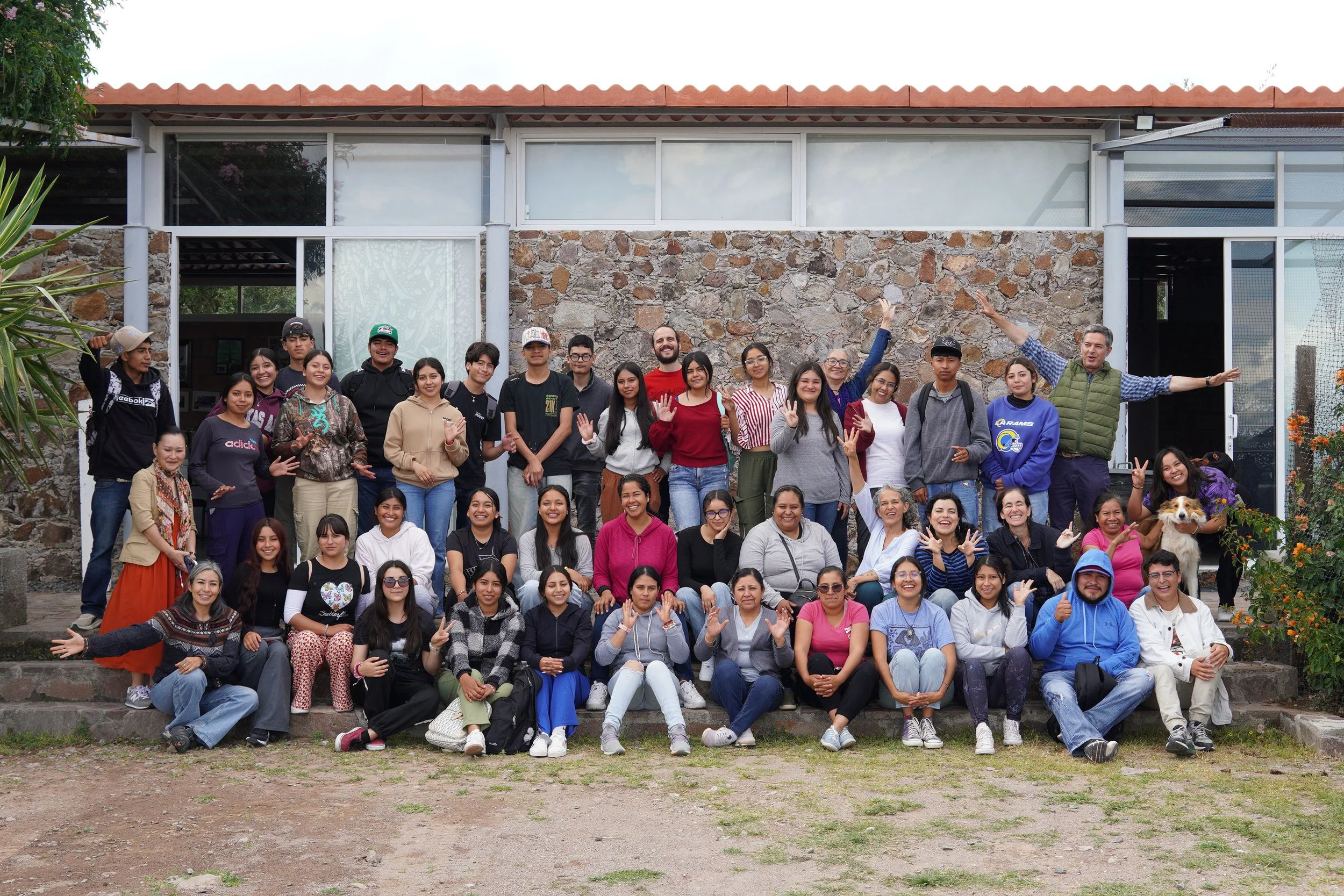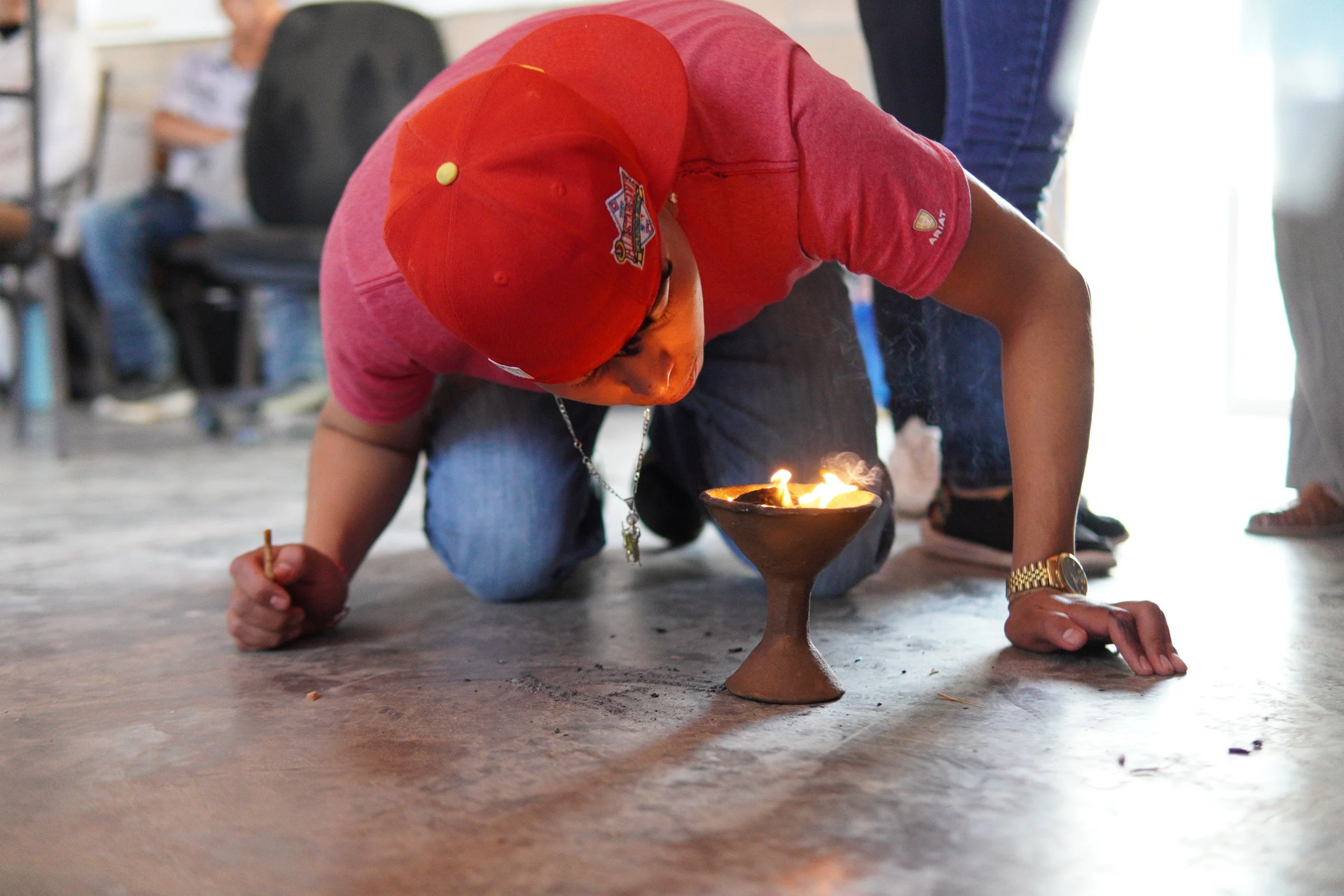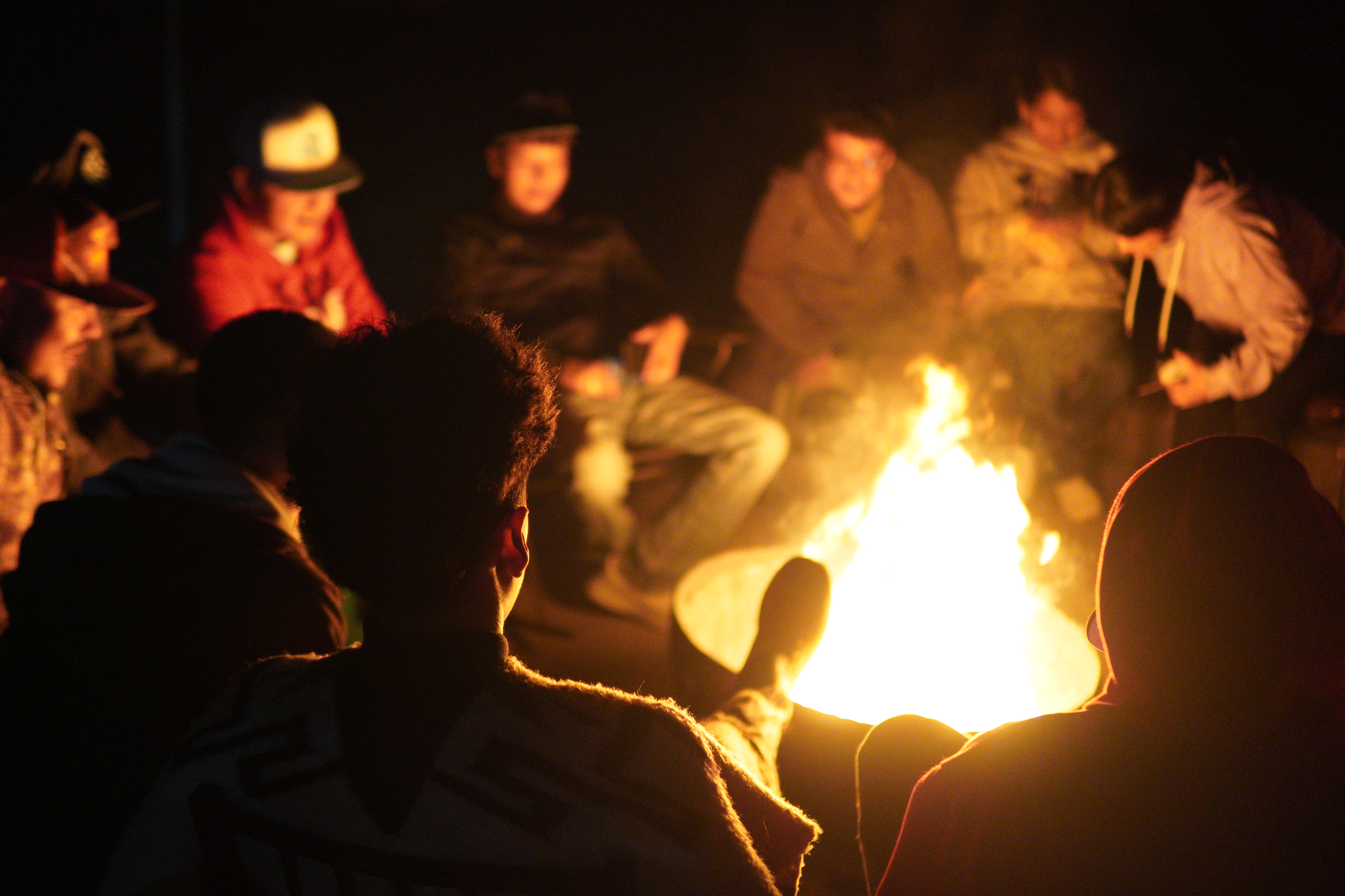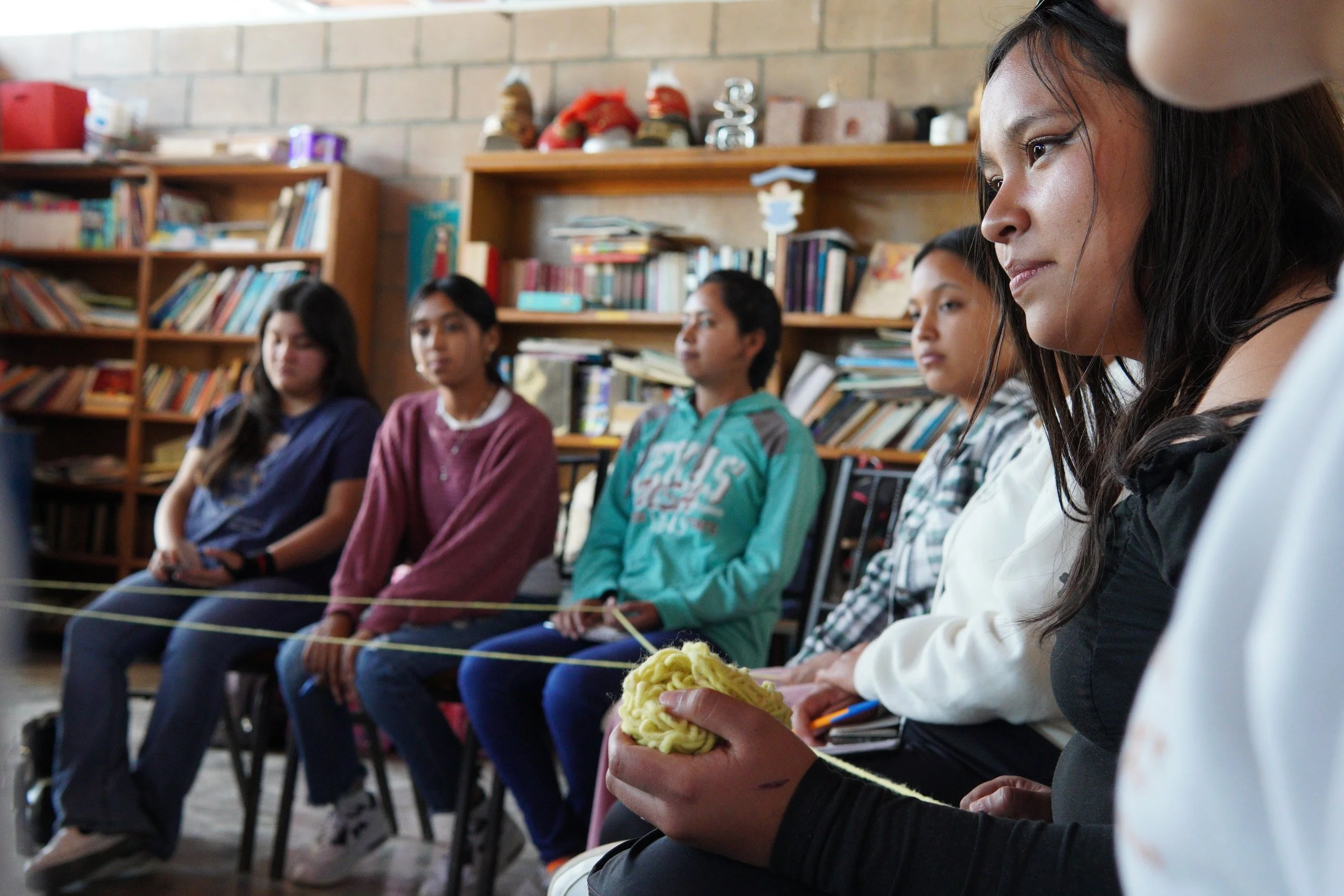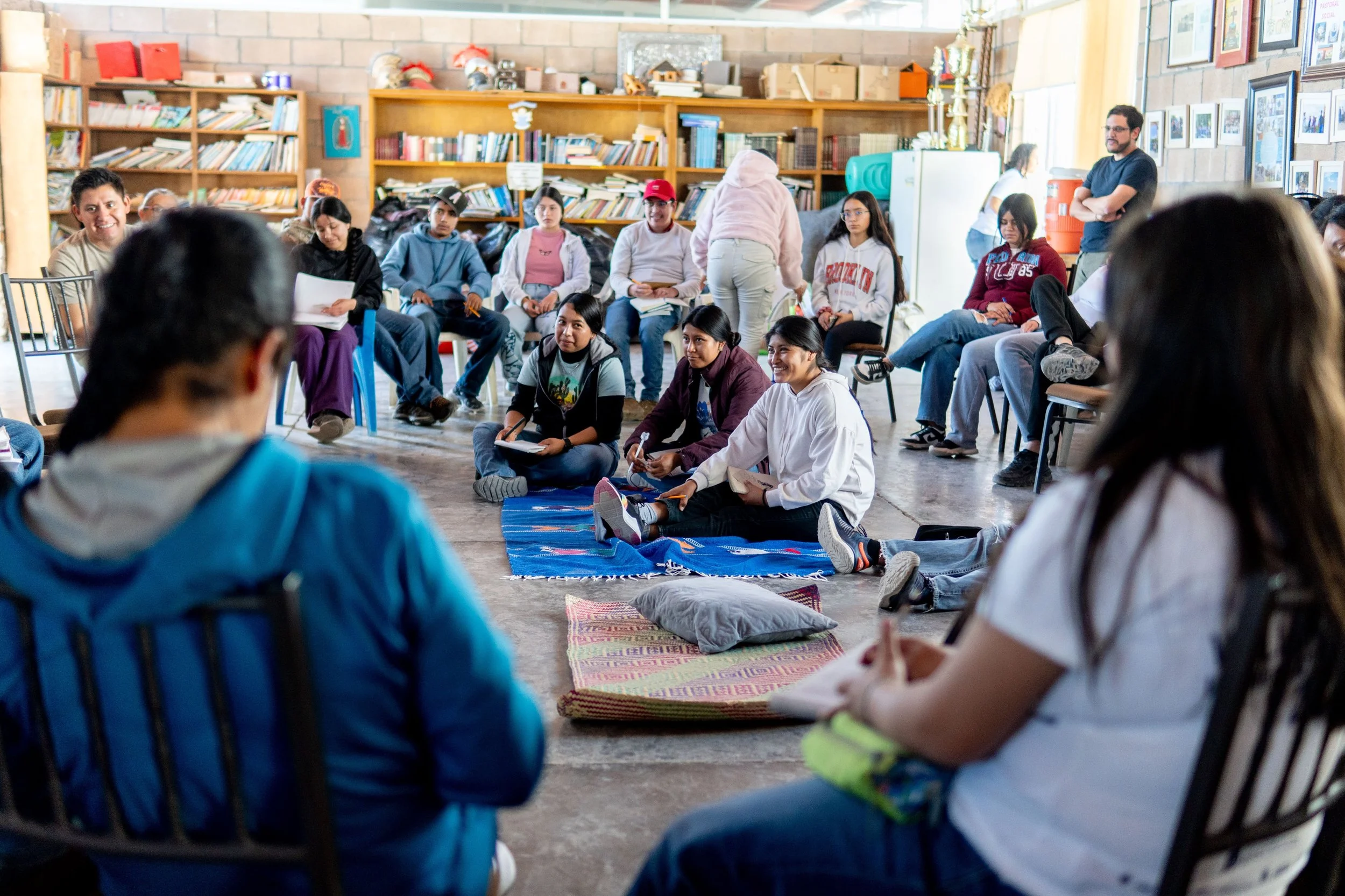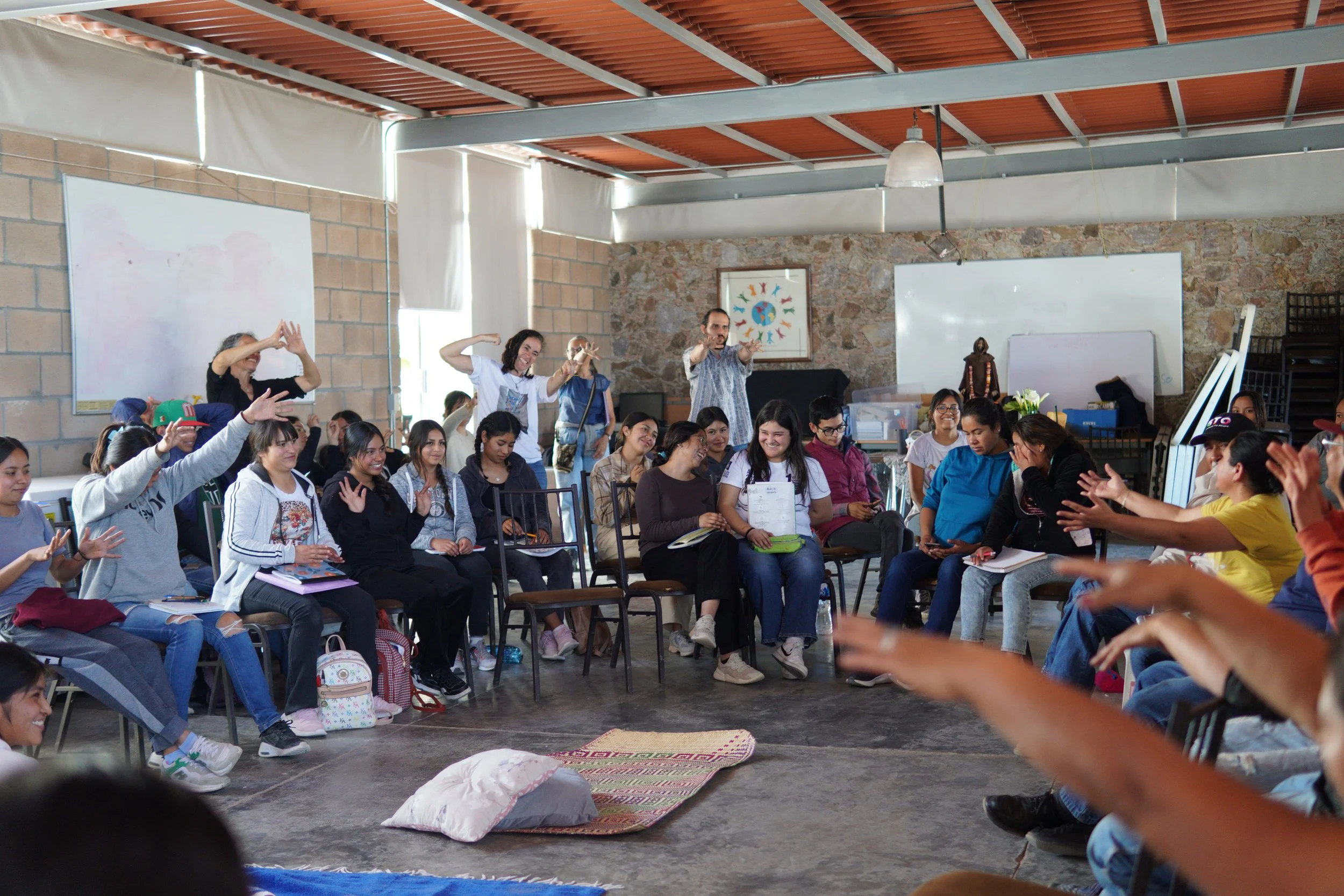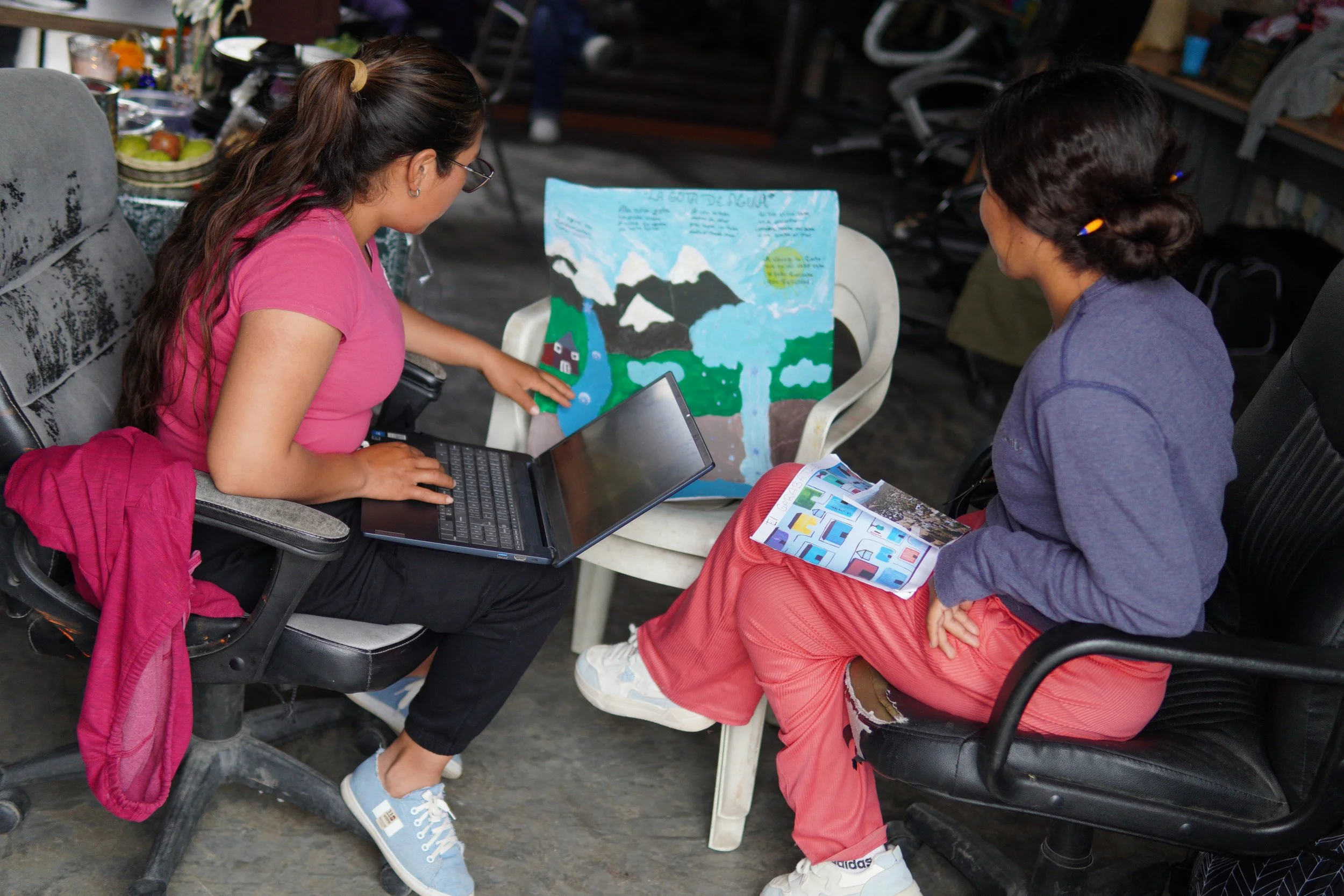
Education
What do we mean by training and support processes?
People experience the impacts of the water crisis in different ways, and those most critically affected, when informed, respond in various ways to secure their water and protect their health. Caminos de Agua collaborates with those facing the water crisis: community organizations, mothers of elementary school children, organized groups in rural communities, and high school student groups.
We strive to connect with people to share information about the water crisis. Part of our work is creating conditions for mutual exchange—sharing what we know about the water situation and technologies for safe water with what people know about their territory. This means that asking, listening, and sharing is our way of moving forward.
We create spaces for conversation where the water crisis is acknowledged, and where we also bring to light what motivates us to seek safe water, what is important to each group regarding water, and what we envision for the future of the watershed we inhabit. This approach helps keep everyone more informed about the situation while also building a shared understanding of the importance of installing a rainwater harvesting system (RWS) at home or using a ceramic filter as an alternative for disinfecting water used for drinking or cooking.
We also aim for the implementation of any Caminos de Agua technology to contribute to strengthening the organizational processes of individuals, groups, and communities. We start from the belief that everyone possesses knowledge, tools, and organizational skills, and we invite these to be put into practice to achieve the construction of a 12,000-liter ferrocement cistern or the installation of a Community-Owned Groundwater Treatment System (GTS).
Collaborative Agreements and Inclusive Practices in Community Engagement
Training and support processes are carried out with respect for the rhythms and routines of people in their daily lives. From the beginning and throughout the collaboration, we establish agreements that answer the question: "How would we like to work together?" Due to various conditions in our watershed, the majority of the people we collaborate with are women, so we ensure collective care practices are in place to facilitate their involvement.
Click on the image on the right to watch a testimony about this approach>
Collective Construction of Wisdom
We agree on meeting times with groups of people where we aim to create conditions for exchange. At Caminos de Agua, we provide reliable data and organized information in work modules: What is the water situation in the watershed we inhabit? What contaminants are present in which water sources? What has happened to our health in the watershed we inhabit? What is safe water for human consumption? What technologies are available for safe water?
We want people to be able to share their experiences, knowledge, and stories so that understandings of our current situation regarding water can emerge. To make the exchange possible, we ask questions and listen.
Technical Trainings
When a group or community decides to implement any of the technologies we work with (Rainwater Harvesting Systems, ceramic filters for water disinfection, a groundwater treatment system, or ecological dry toilets), they are accompanied by sessions where everything necessary for their proper operation and maintenance is shared. The goal is for the technologies to be in the hands of the people who have chosen to use them.
In the case of a Rainwater Harvesting System (SCALL), technical training includes its installation in a household so that the working group can acquire and replicate the necessary tools to install it in their own homes. All materials used are locally accessible. For the construction or installation of a SCALL, the concept of "presta-fuerza" has been significant, referring to the collective effort a group makes to install it.
Follow Up
The process doesn't end once the technologies are installed. To assess whether the technologies have had the desired impacts, we conduct Monitoring and Evaluation. After a certain period, we visit the locations where a Rainwater Harvesting System (SCALL) has been installed or where ceramic filters are used to understand the experiences with the technologies in different contexts.
This allows us to be attentive to what the training process may have generated, address any technical issues that have arisen over time, or reinforce the necessary knowledge for proper maintenance.
-
The intention behind the technological alternatives we share is to ensure that people have access to safe water for drinking and cooking. Simultaneously, our approach to implementing technologies aims to equip individuals, groups, and communities with the necessary tools to replicate them if they choose to do so. Therefore, locally accessible materials are used. When technologies are in the hands of the people, they replicate them because they make sense in addressing the water crisis; these are appropriate technologies. Only in this way can they be sustainable over time.
This ongoing monitoring allows us to learn from the processes, make necessary modifications, and support decision-making that promotes ownership, proper functioning, and confidence in the technologies.
Comunidad de Aprendizaje del Agua (CAA)
The Comunidad de Aprendizaje del Agua (CAA) is a collaborative initiative across 12 communities within Mexico's Cuenca de la Independencia. Established to share knowledge, protect water resources, and support sustainable practices, the CAA fosters both guidance and learning among its participants. Through events, documentation, and shared experiences, this virtual space showcases efforts in water conservation, community health, and memory preservation, encouraging a shared journey toward environmental stewardship and resilience.
The Water School
When we launched the Water School in early 2025 with support from the Mitsubishi Corporation Foundation for the Americas (MCFA), our goal was clear but ambitious: bring together 30 young people from across the Upper Río Laja Basin to learn, share, and prepare to become the next generation of water stewards. The response exceeded our expectations. Thirty-nine apprentices (ages 15–30)—nearly a third more than we had planned committed themselves to this journey. They come from 28 different communities, from all across our region, bringing with them a wealth of lived experience, creativity, and determination. From day one, they showed us that the hunger for knowledge, connection, and collective action around water and the environment runs deeper than we imagined.
As we look toward Year 2, the excitement is palpable. Apprentices will move from exploration to deeper practice: co-leading water initiatives, strengthening community projects, and translating learning into visible change. The first year confirmed not only that the Water School model works, but that it has tapped into a powerful current of youth leadership ready to shape the future of water in the Upper Río Laja Basin.
Funders
Resources
By clicking the button below you can access our Resources and Downloads hub! At Caminos de Agua, we're committed to empowering communities and individuals with the tools, knowledge, and resources needed to access clean, safe drinking water. Here, you'll find a comprehensive collection of educational materials, technical guides, research papers, and innovative solutions for sustainable water management. Whether you're a community member, educator, or water advocate, these resources are designed to support and inspire your journey toward resilient and sustainable water practices.
Get in touch.
Interested in learning more about our work or collaborating with us? Whether you have questions, ideas, or simply want to chat, we’d love to hear from you! Reach out and join us in creating sustainable water solutions for our communities.






